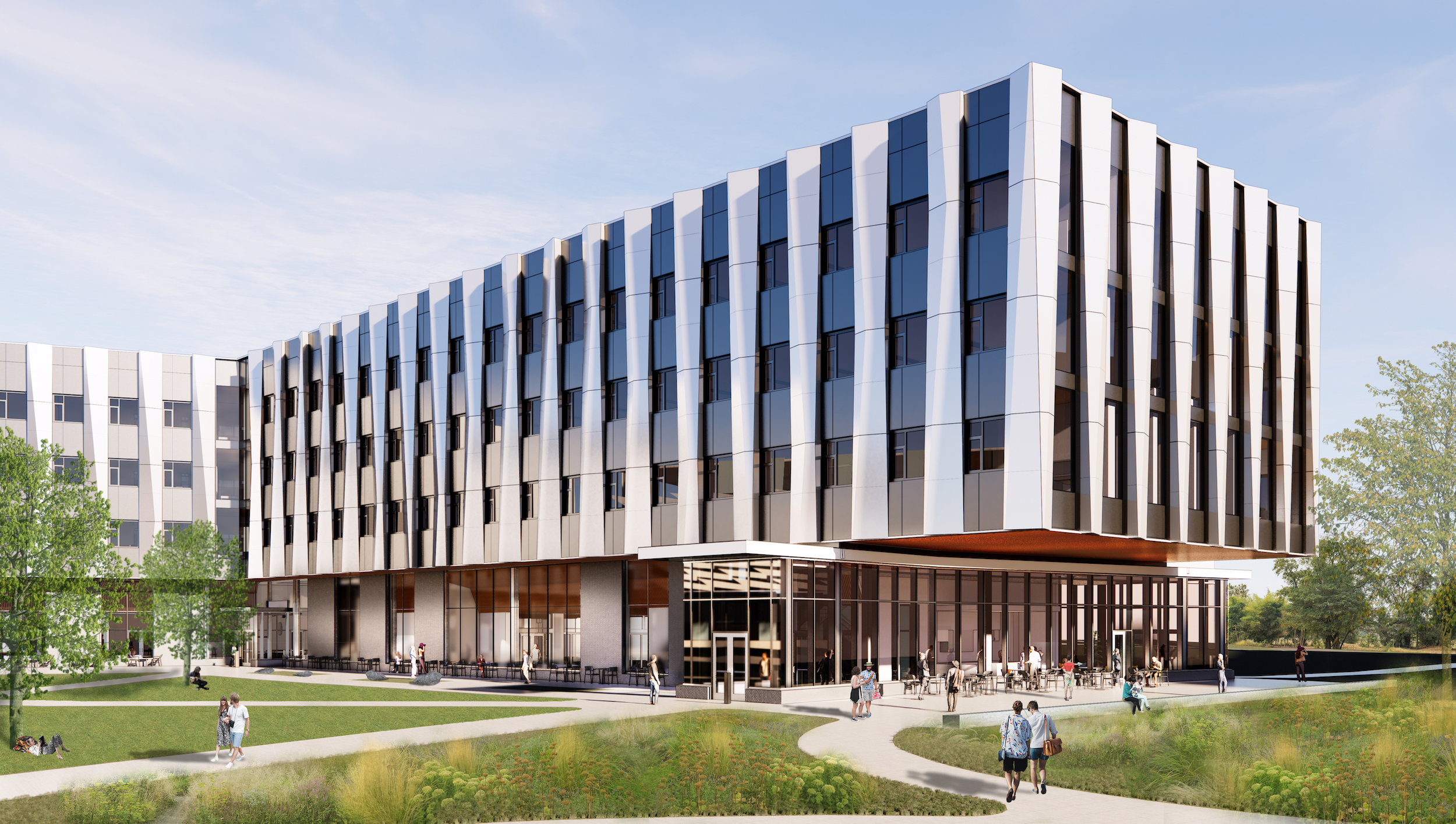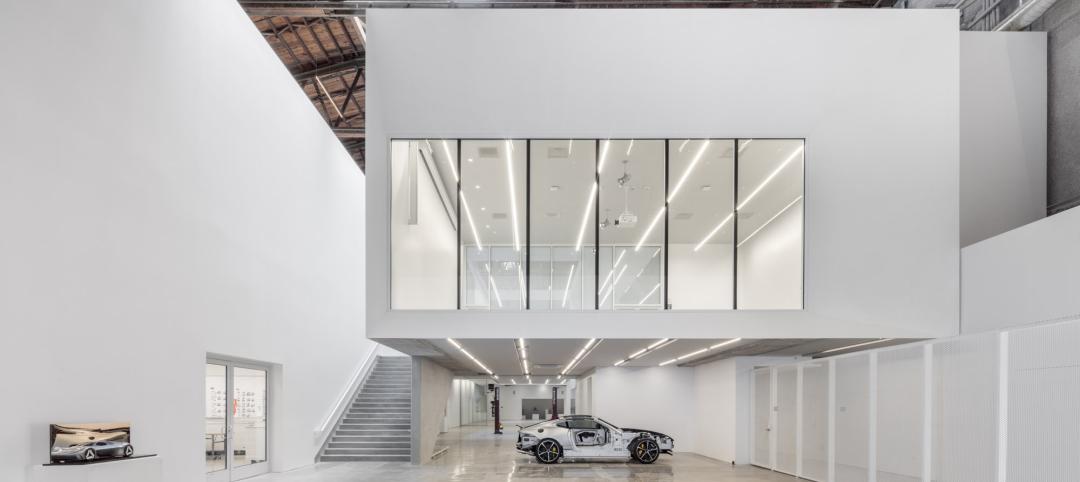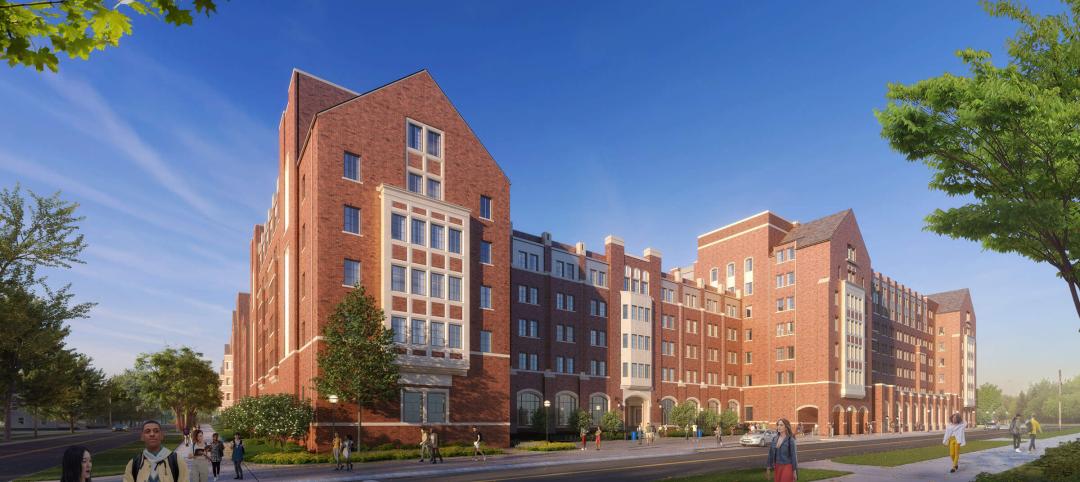Construction recently began on Cornell University’s new 135,000-sf building for the Cornell Ann S. Bowers College of Computing and Information Science (Cornell Bowers CIS). Designed by Boston-based Leers Weinzapfel Associates, the structure will bring together the departments of Computer Science, Information Science, and Statistics and Data Science for the first time in one complex.
The new four-story structure in Ithaca, N.Y., will define a highly identifiable Bowers CIS precinct of continuous building and open space, creating a magnet attracting students from multiple disciplines across the entire university, according to a news release from Leers Weinzapfel Associates. The building’s three research floors connected to Gates Hall will float above a lively and active ground floor framing an outdoor space for daily use, small gatherings, and large ceremonies.
The two wings of the building will contain academic research offices and computational labs augmented by a suite of collaborative spaces on the three upper floors. At the ground level, a student “ramble” along the courtyard edge will provide a place for individual and small group study, while a café, commons, large interactive classroom, a series of large builder labs, and a maker space will provide areas for students to study and work on projects together.
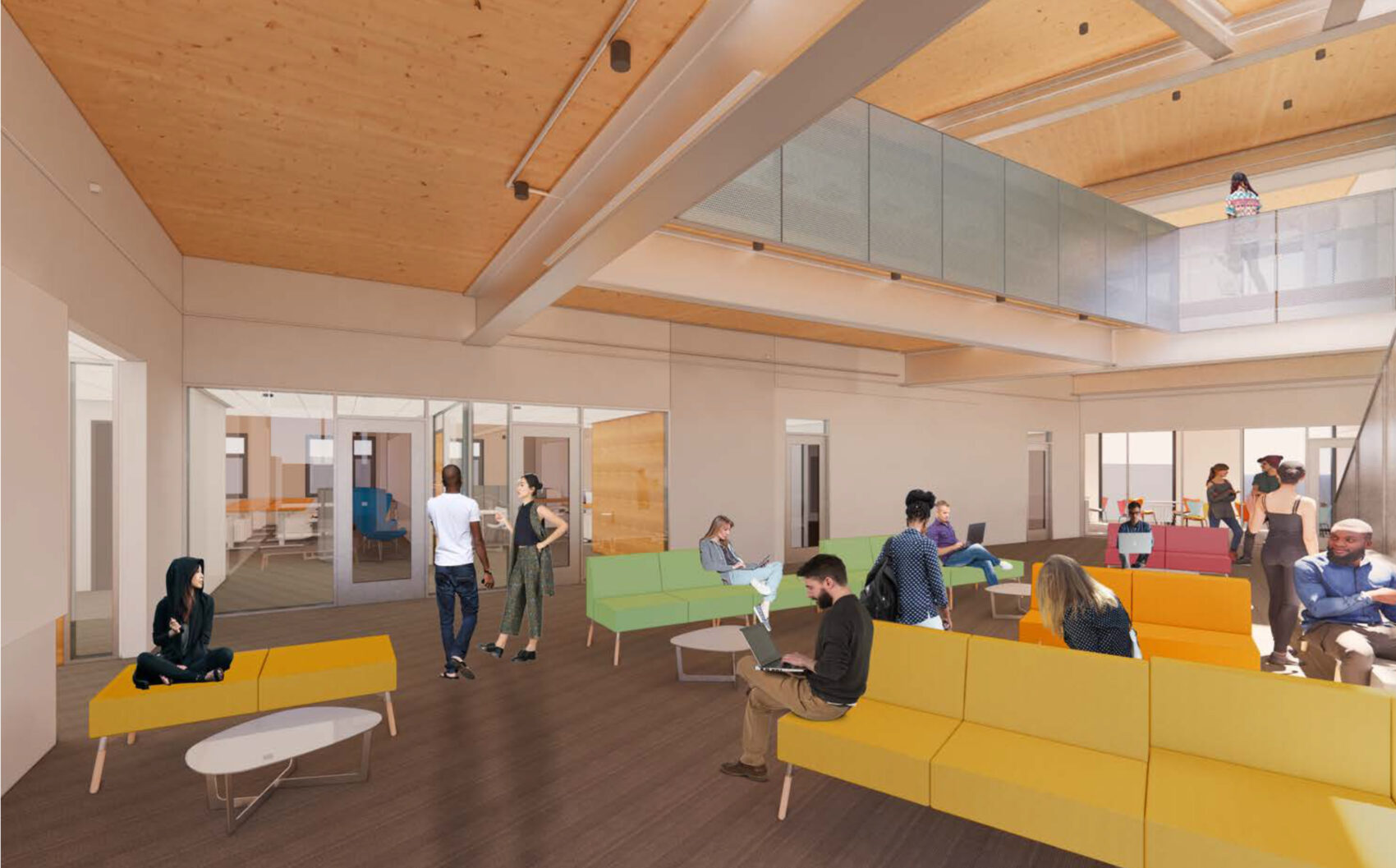
A ribbon of faceted sculptural metal fins will wrap the three-story research floors, creating a distinct identity for the building while maintaining a sustainable limited window area.
“Our goal is to create a place for both the dynamic exchange of ideas and for quiet focused research,” said Andrea Leers, principal-in-charge, Leers Weinzapfel Associates. Since creating the Faculty of Computing and Information Science in 1999, Cornell has experienced continued student growth in the computing and information science fields.
Sustained dynamic growth and uniquely collaborative research fuels the college to develop state-of-the-art computing and information technologies, and to study and understand the societal and human impact of these technologies.
The project will incorporate sustainable development strategies to comply with the Ithaca Energy Code Supplement and NYStretch Energy Code.
On the team:
Owner and/or developer: Cornell University
Design architect: Leers Weinzapfel Associates
Architect of record: Leers Weinzapfel Associates
MEP engineer: BVH Integrated Services, A Salas O’Brien Company
Structural engineer: Thornton Tomasetti
General contractor/construction manager: LeChase
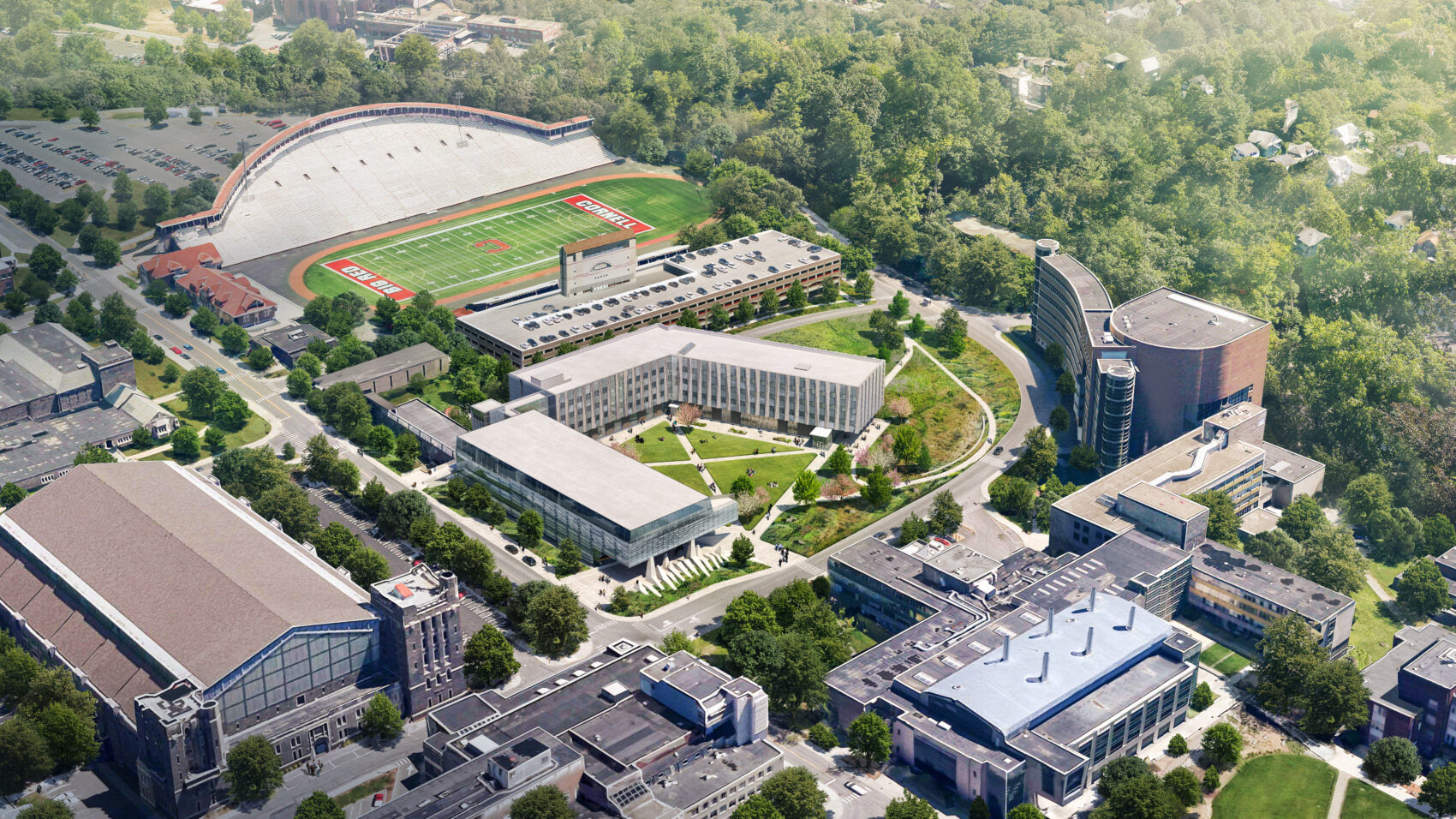
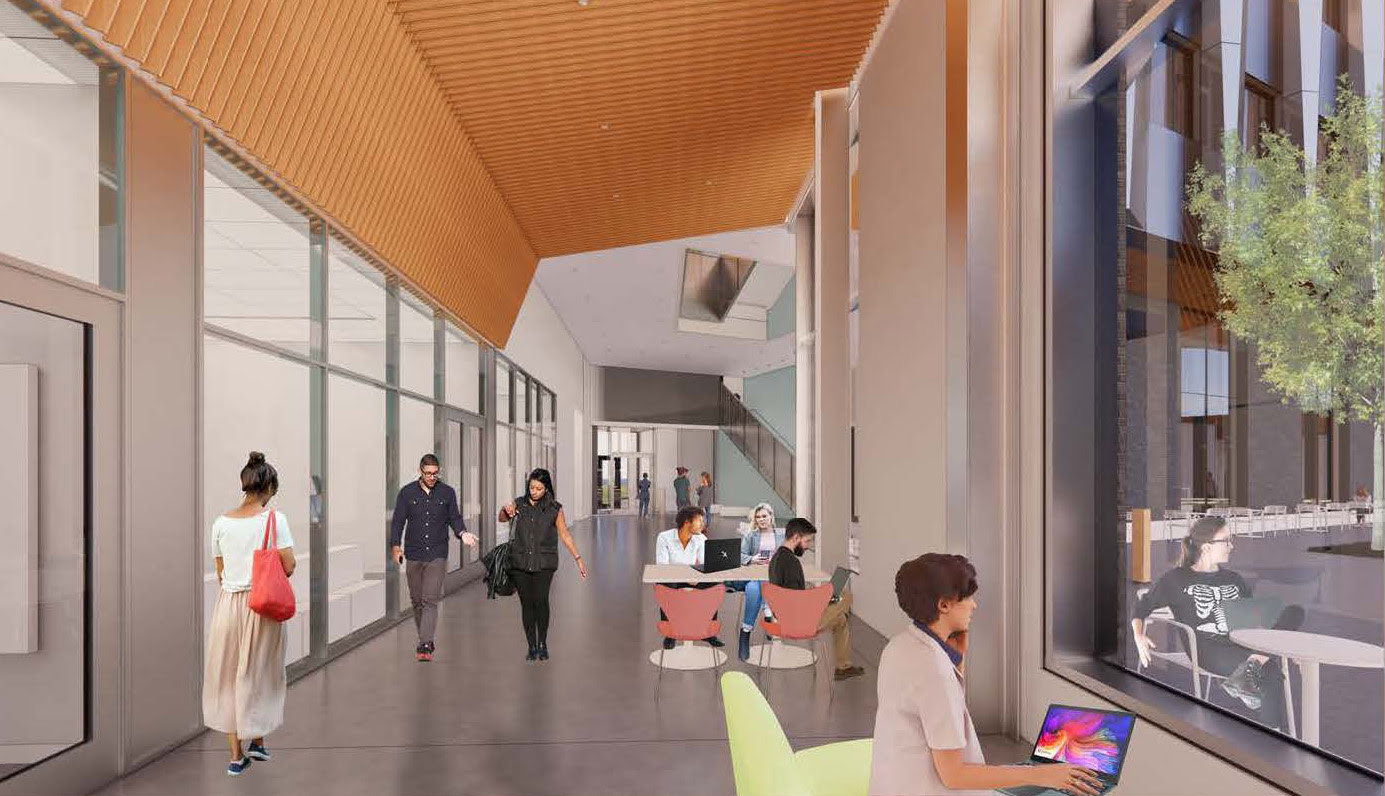
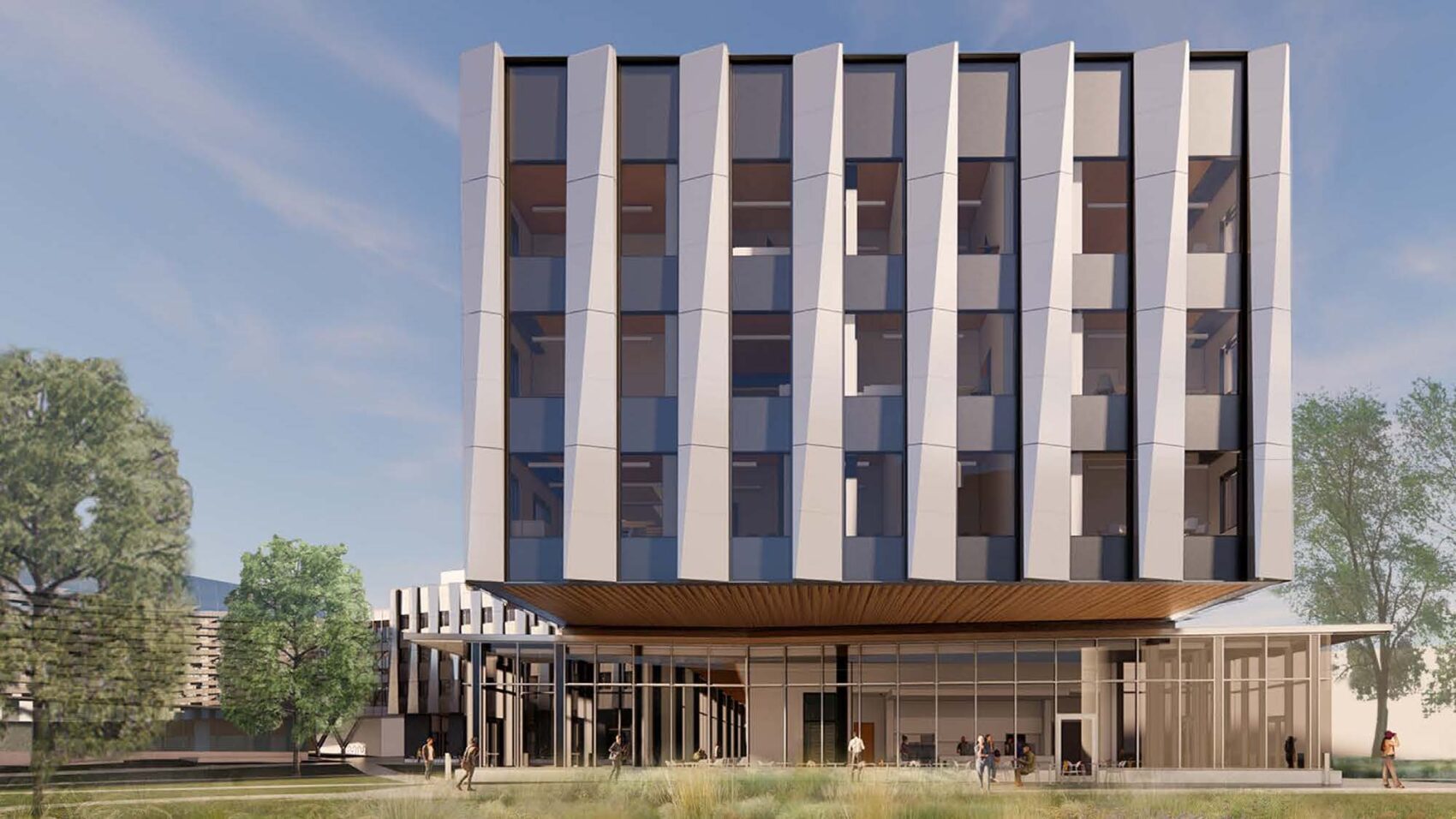
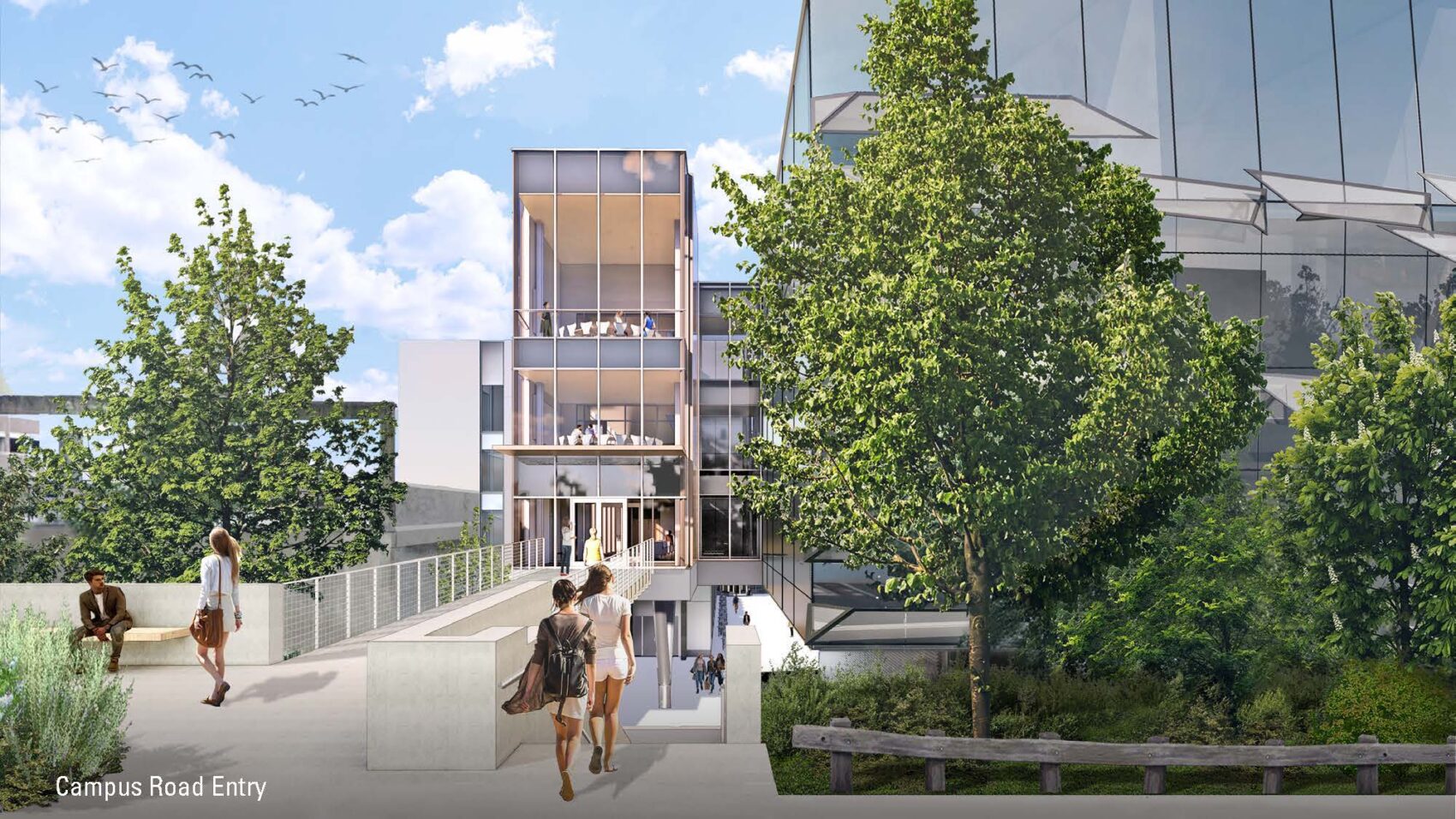
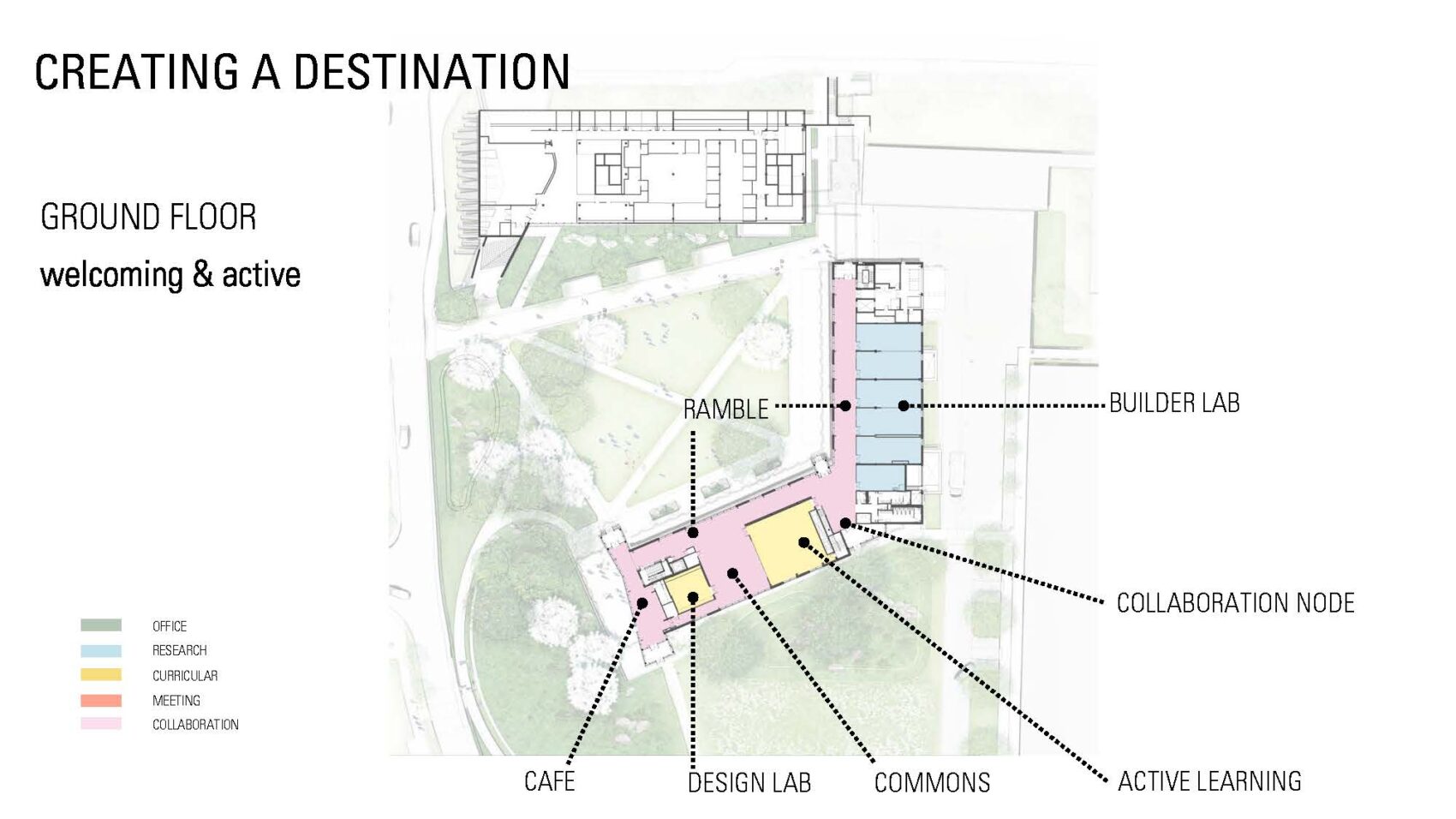
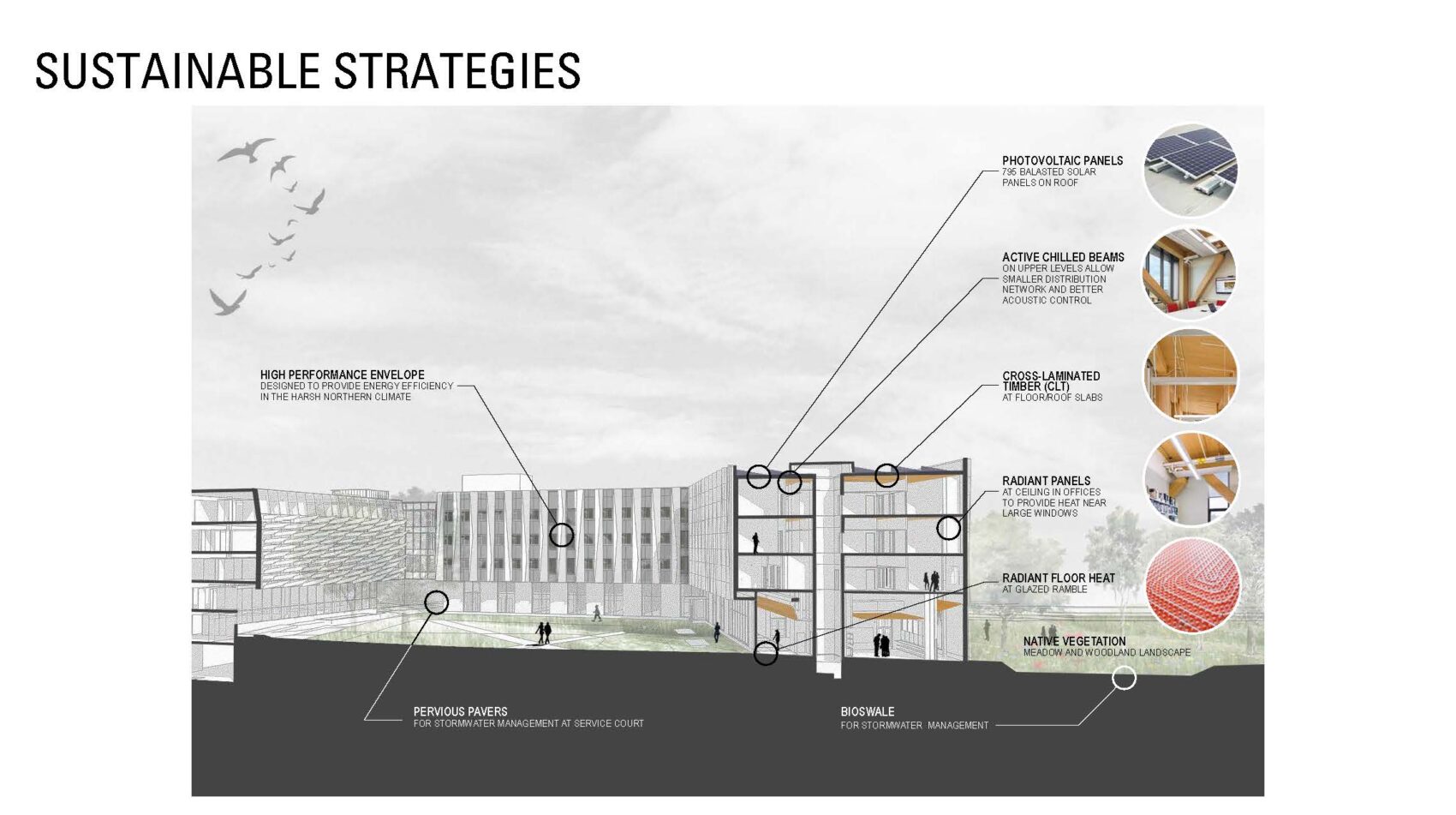
Related Stories
Higher Education | Sep 18, 2024
Modernizing dental schools: The intersection of design and education
Page's John Smith and Jennifer Amster share the how firm's approach to dental education facilities builds on the success of evidence-based design techniques pioneered in the healthcare built environment.
Libraries | Sep 12, 2024
How space supports programming changes at university libraries
GBBN Associate Sarah Kusuma Rubritz, AIA, uses the University of Pittsburgh's Hillman Library to showcase how libraries are transforming to support students’ needs.
University Buildings | Sep 4, 2024
UC San Diego’s new Multidisciplinary Life Sciences Building will support research and teaching in both health and biological sciences
The University of California San Diego has approved plans for a new Multidisciplinary Life Sciences Building, with construction starting this fall. The 200,000-sf, six-level facility will be the first building on the UC San Diego campus to bridge health science research with biological science research and teaching.
University Buildings | Aug 12, 2024
Planning for growing computer science programs
Driven by emerging AI developments and digital transformation in the business world, university computer science programs are projected to grow by nearly 15% by 2030.
Education Facilities | Aug 4, 2024
A former supersonic wind tunnel becomes a new educational facility for transportation design
The Mullin Transportation Design Center at ArtCenter College of Design in Pasadena, Calif., provides access for full-scale vehicular models, replicating a professional design studio.
University Buildings | Aug 1, 2024
UC Riverside’s student health center provides an environment on par with major medical centers
The University of California, Riverside's new Student Health and Counseling Center (SHCC) provides a holistic approach to wellness for students throughout the UC Riverside campus. Designed by HGA and delivered through a design-build partnership with Turner Construction Company, SHCC provides healthcare offerings in an environment on par with major medical centers.
Student Housing | Jul 31, 2024
The University of Michigan addresses a decades-long student housing shortage with a new housing-dining facility
The University of Michigan has faced a decades-long shortage of on-campus student housing. In a couple of years, the situation should significantly improve with the addition of a new residential community on Central Campus in Ann Arbor, Mich. The University of Michigan has engaged American Campus Communities in a public-private partnership to lead the development of the environmentally sustainable living-learning student community.
Adaptive Reuse | Jul 30, 2024
Empty mall to be converted to UCLA Research Park
UCLA recently acquired a former mall that it will convert into the UCLA Research Park that will house the California Institute for Immunology and Immunotherapy at UCLA and the UCLA Center for Quantum Science and Engineering, as well as programs across other disciplines. The 700,000-sf property, formerly the Westside Pavilion shopping mall, is two miles from the university’s main Westwood campus. Google, which previously leased part of the property, helped enable and support UCLA’s acquisition.
Smart Buildings | Jul 25, 2024
A Swiss startup devises an intelligent photovoltaic façade that tracks and moves with the sun
Zurich Soft Robotics says Solskin can reduce building energy consumption by up to 80% while producing up to 40% more electricity than comparable façade systems.
Great Solutions | Jul 23, 2024
41 Great Solutions for architects, engineers, and contractors
AI ChatBots, ambient computing, floating MRIs, low-carbon cement, sunshine on demand, next-generation top-down construction. These and 35 other innovations make up our 2024 Great Solutions Report, which highlights fresh ideas and innovations from leading architecture, engineering, and construction firms.


